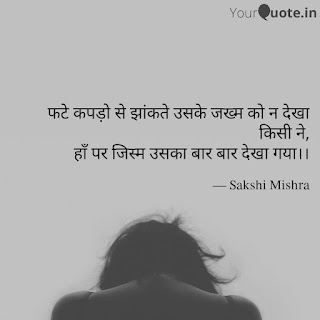India has been witnessing feminism movements since the early days. The ban of the Sati system, child marriage, and various political issues like the Involvement of Women in the Quit India movement are some of the examples. The 1917 movement by Sarojini Naidu, for the right to vote to drive the constitution of a committee consisting of 14 women across India was a big milestone in Indian feminism history. From Savitribai Phule to Ishmat Chugtai, outspoken feminists have been living in India for decades.
If we go back to the ages of Vedas, Draupadi remodeled the notion of monogamy and sati; Sita of motherhood and power; Kali of violence; Puru’s young wife of sexuality; and the bhakta women of marriage and prayers.
The fact that India is one of the 36 countries of the world, where marital rape is legal unless the girl is minor boldly displays how women are oppressed openly in our patriarchal society. Inequality based on gender differences resulted in the difference in female literacy rates being lower at 65.46% than males at 82.14%. Well, it does not end here only. Every day newspapers are filled with the death and suicide of women and also with the death of female foeticide. Women are subjected to acid attack, child marriage, domestic violence, honor killings, abortion, sexual harassment, rape, trafficking is indicative of why India is declared as the most unsafe country for women by Thomson Reuter’s Foundation. In a developing country like India, only 14.5% of women are in Parliament and the maternal mortality being 174/10,000 is not given much attention. The gender pay gap is thought to be normal, we find it everywhere, and we feel this is how it should be.
This indiscrimination particularly alarms women across the country to raise their voices. When women stood strong against these, it was called feminism. It is an act of gaining equivalent opportunities and rights for women over the country. The participation of women in social and political life, their upliftment and empowerment along with dissolving heterogeneity of the society and identification of rights, which have been ignored for a long, was considered as the basic agenda.
Feminism
aims at breaking the strong stereotyping in the capabilities and
responsibilities of men and women, males are thought of to be more productive
and therefore are more educated. Moreover, it is associated with self-
reflection, understanding of values, and realization of self-worth. Exploring
the roles, and abounding some of the stereotypes, many bring an intellectual
trip for women across the country. The #MeToo movement in India, empowered many
women, both from India and outside, to expose the men who sexually exploited,
harassed, or assaulted other women.
A woman who is distressed by methodical social abuse because of their sex or caste, which is not granted to act willingly, who has been facing oppression while immigrating in jobs or businesses should be subjected to social, moral, economical, cultural, marital as well as individual consciousness for the awareness of their power and identity.






